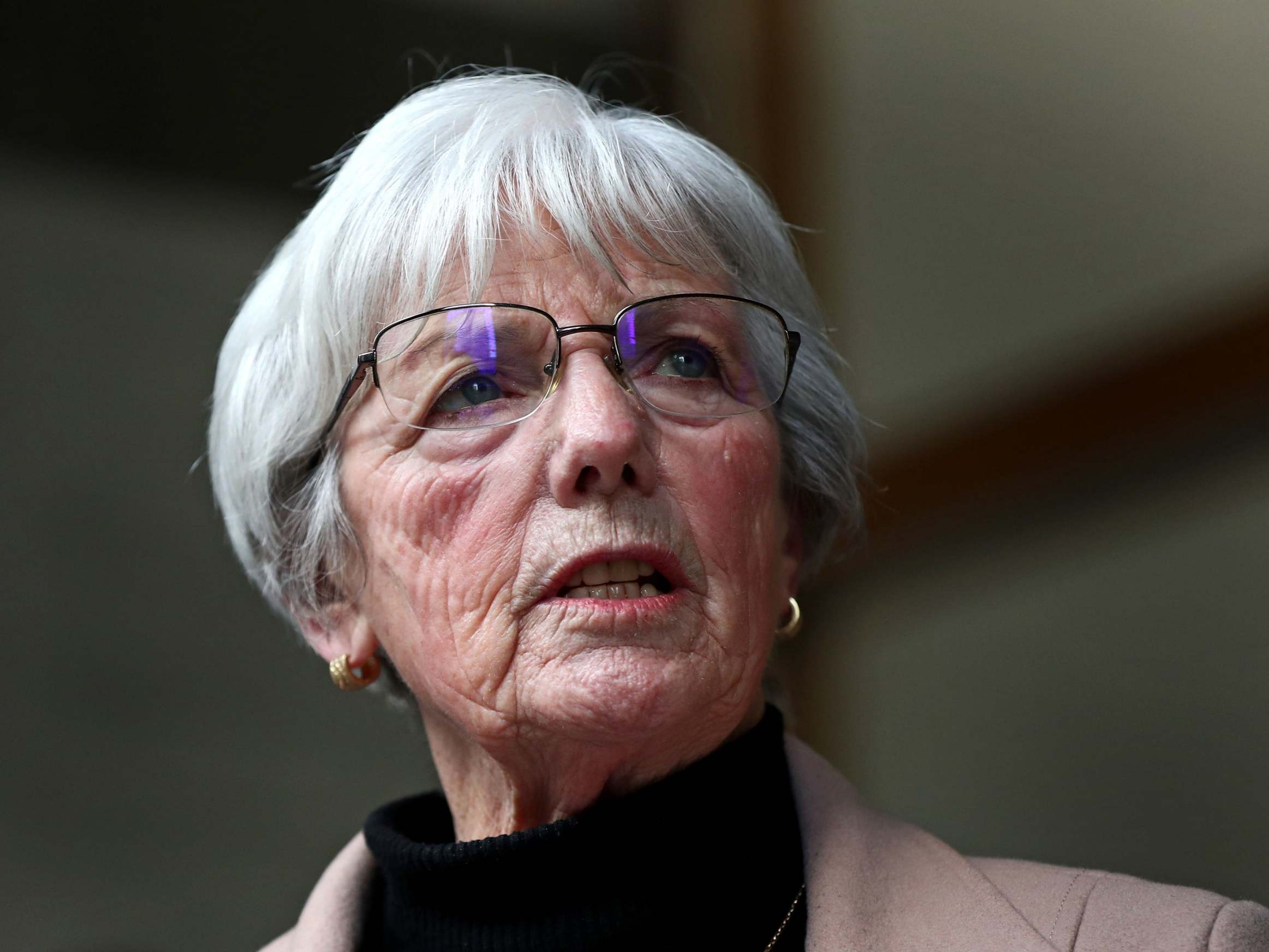Your support helps us to tell the story
From reproductive rights to climate change to Big Tech, The Independent is on the ground when the story is developing. Whether it's investigating the financials of Elon Musk's pro-Trump PAC or producing our latest documentary, 'The A Word', which shines a light on the American women fighting for reproductive rights, we know how important it is to parse out the facts from the messaging.
At such a critical moment in US history, we need reporters on the ground. Your donation allows us to keep sending journalists to speak to both sides of the story.
The Independent is trusted by Americans across the entire political spectrum. And unlike many other quality news outlets, we choose not to lock Americans out of our reporting and analysis with paywalls. We believe quality journalism should be available to everyone, paid for by those who can afford it.
Your support makes all the difference.The mother of Helen McCourt, who was murdered in 1988 and her body never discovered, has told her daughter’s killer to give her remains back.
Ian Simms was convicted by a jury on overwhelming DNA evidence for the abduction and murder of the 22-year-old victim, but has never admitted his guilt or revealed the location of his victim’s remains.
McCourt disappeared on her way home from work in Liverpool in 1988.
Her killer was released on Wednesday after more than 30 years in prison, following a ruling by High Court judges that he should not be kept in custody while waiting for the outcome of a legal challenge.
McCourt’s mother, Marie McCourt, told the BBC’s Breakfast programme on Thursday she wants her “child back” after losing a legal bid to keep Simms in prison.
She said: “All I want, all I’ve ever wanted, is to have my child back.
“Whatever tiny bits of pieces there are. It’s my daughter’s. And I want them back.
“That’s the part that gets me, I can’t give Helen the last goodbye,” McCourt’s mother added. “I didn’t think a heart could break twice, but mine did.”
Since the death of her daughter, Marie McCourt has campaigned to change the law to deny parole to killers who do not reveal the location of their victim’s bodies and said she has never given up hope of finding her daughter’s remains.
The Prisoners (Disclosure of Information about Victims) Bill – also known as Helen’s Law – has failed to be ratified before parliament and was delayed twice because of general elections.
“I kept telling myself I’m strong enough to do it. That, OK it may not benefit my case but it will hopefully benefit all the people who are going through the same thing as me and all the families who will also follow on,” Marie McCourt said of Helen’s Law.
The decision to release Simms was made in November last year, due to “considerable change in his behaviour”, which meant he “met the test for release”.
Marie McCourt said at the time she was “shocked” and “horrified” by the decision, and added: “This man is a danger, you know.
“I just wonder if some of these people who feel that they’re safe to be released… it’s OK for them, they are not going to live by them. But the people in the area, they will have to put up with that.”
McCourt’s family launched a legal bid arguing that Simms should stay behind bars ahead of a judicial review of the Parole Board decision, but it was refused.

On Wednesday, a Ministry of Justice spokesperson said: “We completely understand the pain and anguish that the Parole Board’s decision has caused Marie McCourt and her family.
“The lord chancellor asked the Parole Board to reconsider but has no legal power to overrule these decisions.
“The High Court’s ruling meant we had to release Ian Simms from custody, though he will be recalled if the court later decides to quash the Parole Board decision.
“He will be on licence for life, subject to strict conditions and probation supervision when released, and he faces a return to prison if he fails to comply.”
Simms, a pub landlord, will have to wear a tagging device allowing police to monitor his whereabouts, observe a curfew and avoid any contact with McCourt’s family.
He was given a life sentence with a minimum term of 16 years. He was eligible to be considered for released in February 2004.

Join our commenting forum
Join thought-provoking conversations, follow other Independent readers and see their replies
Comments